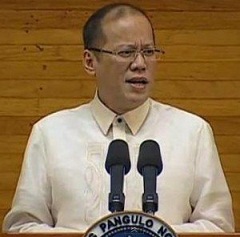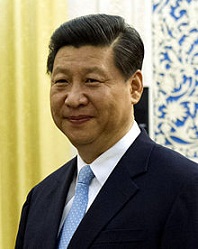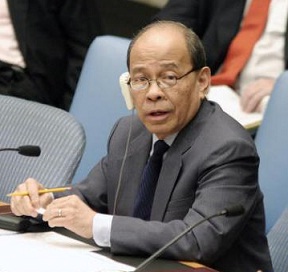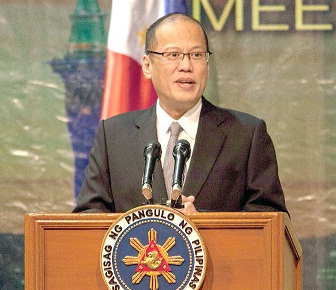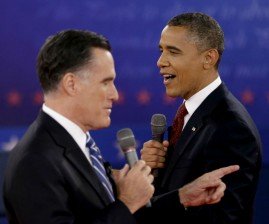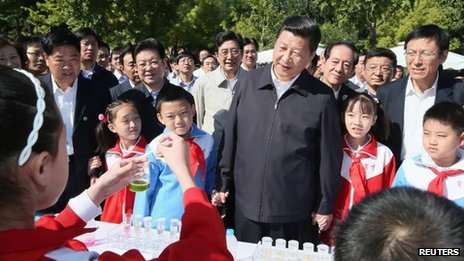Simple: President Aquino does not support it.
Despite the fact that he was product of media hype, he does not understand the role of media in governance and in strengthening democracy. Although he said when he was campaigning for the presidency in 2010 that he was going to support the FOI bill, he never included it among his administration’s priority measures.
Look back to his statements the past two years:
In Oct. 2011, before Southeast Asian leaders, Aquino said: “You know, having a freedom of information act sounds so good and noble but at the same time—I think you’ll notice that here in this country—there’s a tendency of getting information and not really utilizing it for the proper purposes.”
He complained that, “There are so many people who will always look at the bottle half-empty, or sometimes the half-empty bottle even becomes the quarter, quarter-full bottle.”
Earlier, in Nov. 2010, while attending the Asia Pacific Economic Cooperation in Yokohama, Japan Aquino made the same complaint about media in his meeting with the Filipino community:
“Ang nangyayari kasi, para makuha ang atensyon ng karamihan, kinakamot nila nang kinakamot ang isang katiting na galos. Kahit naman sino, natural lang na nawalan ng ganang magtrabaho kung puro kapalpakan lamang ang nababalitaan,” he said.
Last year, in a YouTube worldwide interview, to a question by a 7-year-old boy if he believed in Santa Claus, his answer was to lambast media:
“Do I believe in Santa Claus? Santa Claus perhaps is a personification of… (the) best in people, the idea of generosity. The idea of caring does come out, at least for Christians during this period, most particularly and most shall we say strongly.
“More than anything, we really have to shift, to those of us still left (from) the criticize-anything-and-everything phase to transforming ourselves into how we can assist our neighbor, our sister, our brother or whoever, somebody we don’t even know.”
Berating media has become a habit for Aquino.The poor boy (Joshua) must have been confused with the President’s answer.
Less than a week after that YouTube interview, Aquino was again into media-bashing. In addressing the 37th Top Level management Conference of the Kapisanan ng mga Brodkaster ng Pilipinas at the Clark Freeport Zone in Pampanga, he focused on the rotten tomatos in media:
“Kailangan din nating aminin na hindi perpekto ang media, at tulad ng anumang institusyon na may lakas at impluwensya, may mga bulok na kamatis din, na sa kasamaang palad ay naihahalo dito. Bilang mga kalasag ng taumbayan sa tuwid na daan, tungkulin ng KBP at ng buong media na bantayan ang sarili ninyong hanay laban sa mga dumudungis sa inyong larangan.
“Silang mga nangingikil kapalit ang mabangong headline sa diyaryo, silang nambabaluktot ng balita upang mapaboran ang iilan, silang naghahasik ng mga walang-basehang tsismis at kasinungalingan para lamang mailayo ang atensyon ng taumbayan sa katotohanan. Kung katapatan at malasakit sa bayan ang sukatan ng pagiging lingkod-bayan, masusing pagsiyasat sa mga detalye at kredibilidad naman ang sukatan sa inyong larangan… Ang nakakadismaya lang, tila nakakalimutan ng ilang taga-media ang kanilang pangunahing tungkulin: ang maghayag ng katotohanan, at hindi para manghula o magluto ng balita.”
Yesterday, in this year’s KBP conference, Aquino did it again, lambasting media for not writing enough about the good things about his accomplishments.
No one was surprised. It’s getting boring.
He is insisting on the inclusion of Right of Reply provision in the FOI bill. He really doesn’t understand the importance of media and how it works.
Stung by accusations that he purposely killed the FOI bill, Rep. Ben Evardone, chair of the House Committee on Public Information, said he will force a vote on Nov. 27. They will vote on four questions:
1. Do you want the inclusion of the Right of Reply in the FOI bill?
2. Do you want to exclude national security matters in the FOI bill?
3. Do you want the inclusion of private companies in the FOI?
4. What safeguards do you want to prevent possible abuses of the rights under FOI law?
The questions look like final nails in the coffin.
